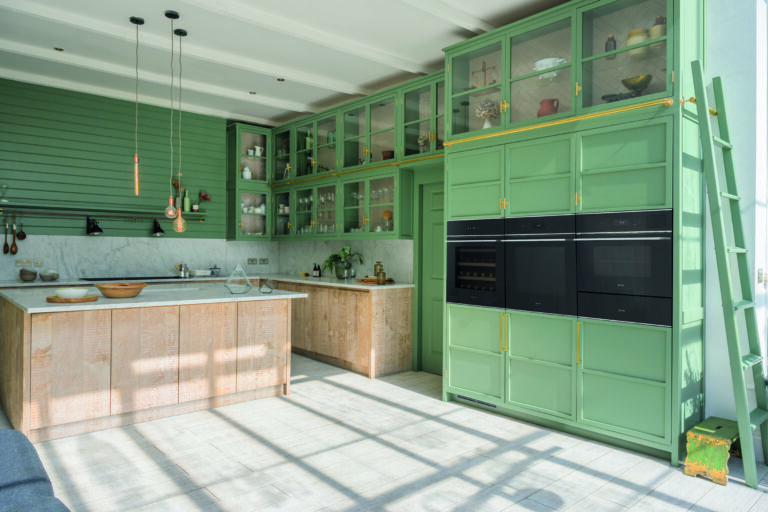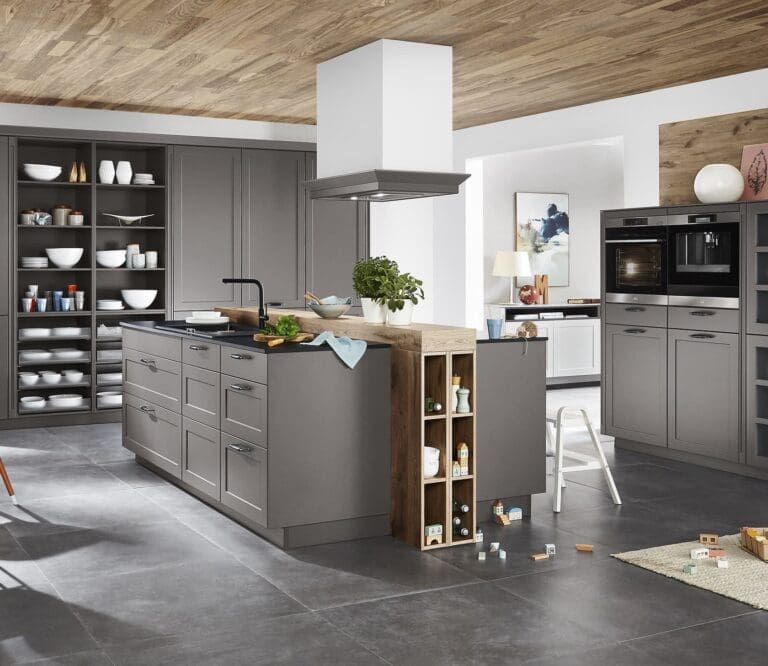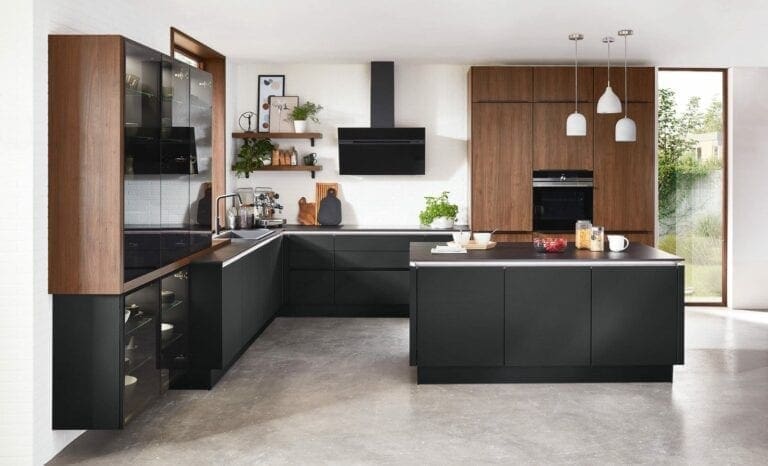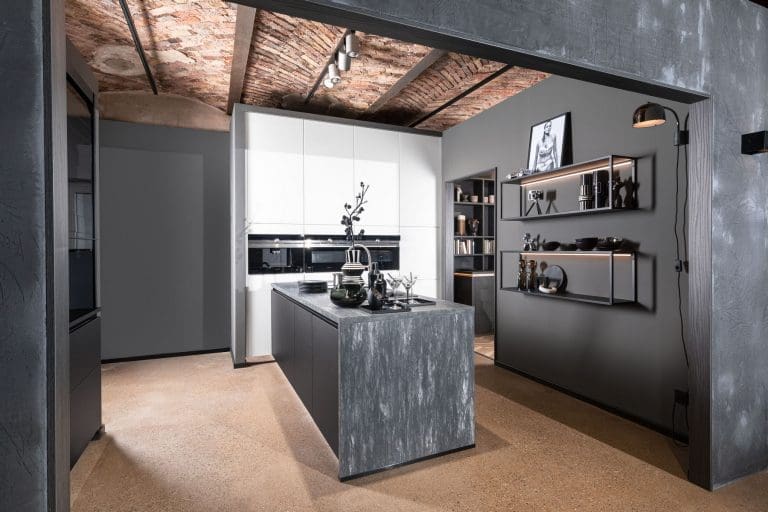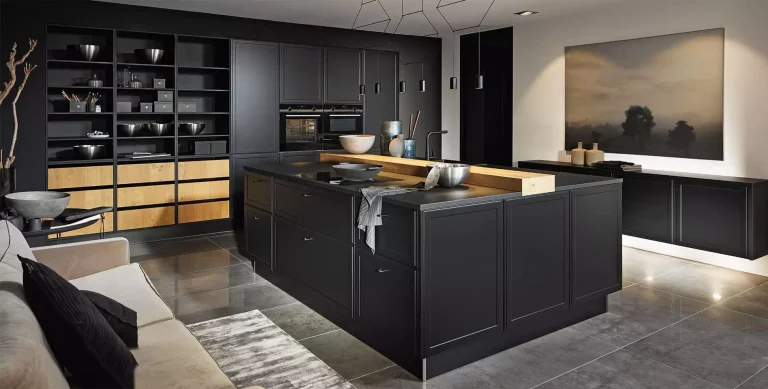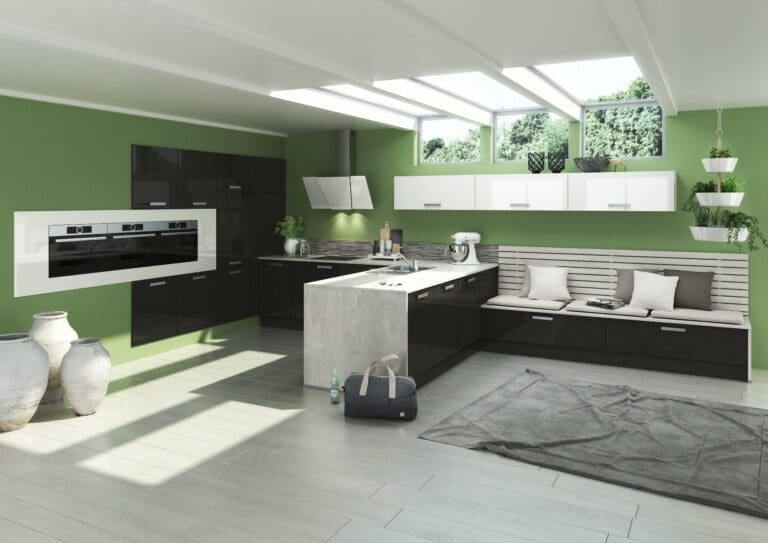Discover the Top 5 Kitchen Work Surfaces in the UK: Pros, Cons, and Best Brands
Choosing a kitchen work surface is a big decision. It’s a significant investment and can completely change the look and feel of your kitchen. But with so many options available, how do you choose the right one for you? Here, the Kitchen Experts will break down the pros and cons of five popular kitchen work surface materials in the UK, discuss some of the leading brands, and help you make the right choice for your needs and budget.
1. Quartz Kitchen Worktops
Quartz has become incredibly popular in UK kitchens, and for good reason. It’s a manufactured stone made from natural quartz combined with resins and pigments. This results in a durable, non-porous surface that’s available in a huge range of colours and patterns.
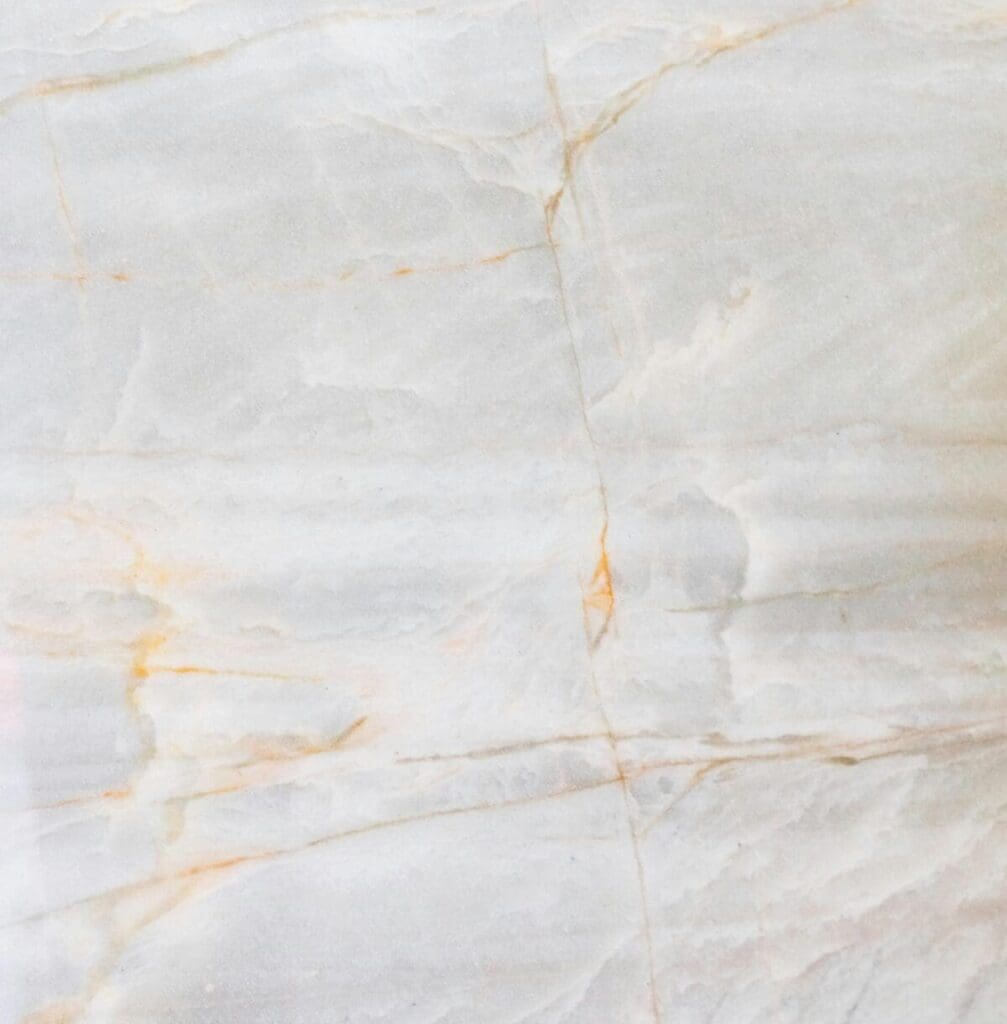
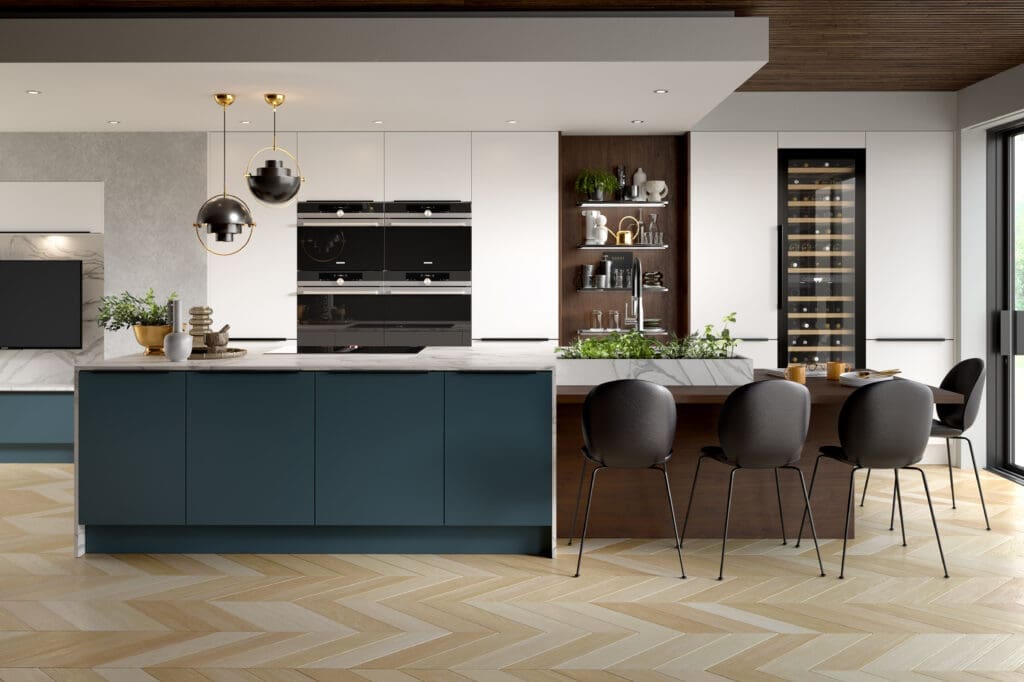
Pros and Cons of Quartz
Pros of Quartz:
- Durability: Quartz is one of the toughest materials available, making it resistant to scratches, chips, and heat.
- Hygiene: Its non-porous nature means it won’t harbour bacteria or stains, making it very hygienic and easy to clean.
- Appearance: Quartz offers a consistent look with a wide variety of colours and patterns to match any kitchen style.
Cons of Quartz:
- Cost: Quartz can be more expensive than other work surface materials like laminate.
- UV Sensitivity: Prolonged exposure to sunlight can cause some colours to fade.
- Not entirely heatproof: While heat resistant, placing extremely hot pans directly on the surface can cause damage.
Leading Quartz Brands
- Silestone by Cosentino: Known for its innovative technology and wide range of colours, Silestone offers high-quality quartz surfaces with impressive durability. Their N-Boost technology provides improved stain resistance and easier cleaning.
- Caesarstone: Another popular brand, Caesarstone offers a diverse range of colours and finishes, from classic marble looks to contemporary concrete effects.
- Unistone: Unistone provides a good balance of quality and affordability, with a wide array of colours and patterns to suit different tastes.
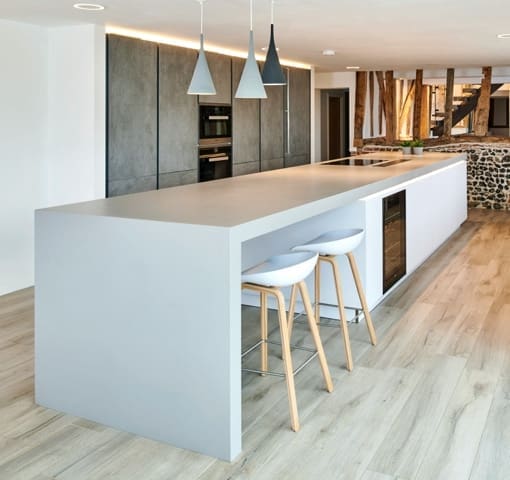
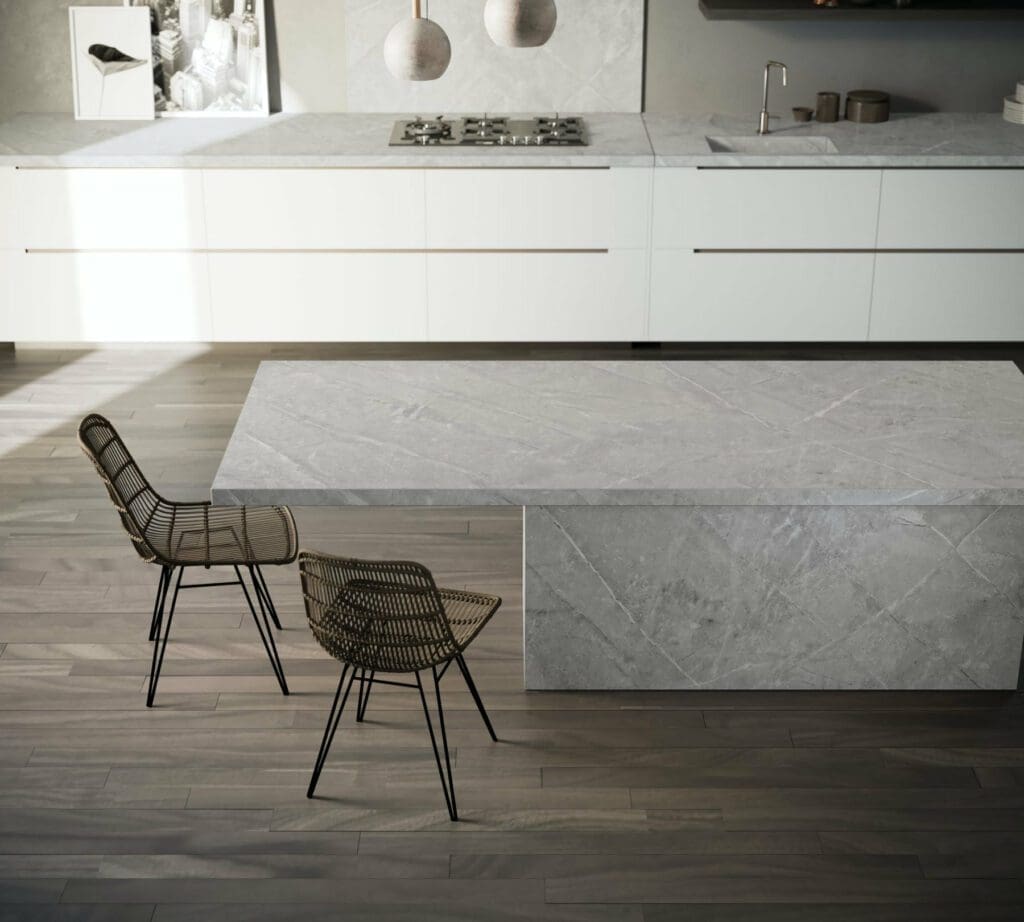
2. Sintered Stone Kitchen Worktops
Sintered stone is a relatively new kitchen work surface material that’s making waves in the kitchen design world. It’s made from natural minerals like quartz, feldspar, and silica, which are subjected to incredibly high temperatures and pressure. This process creates an extremely strong and durable material that’s resistant to just about everything.
Pros and Cons of Sintered Stone
Pros of Sintered Stone:
- Ultra-durable: Sintered stone is incredibly resistant to scratches, heat, stains, and UV fading. You can place hot pans directly on it without worry.
- Hygienic: Its non-porous nature makes it very hygienic and easy to clean.
- Design versatility: Available in a wide range of colours, patterns, and finishes, including realistic marble and concrete effects.
Cons of Sintered Stone:
- Cost: Sintered stone is a premium material and can be quite expensive.
- Can be brittle: While incredibly strong, the edges can be prone to chipping if not handled carefully.
- Installation: Requires specialist knowledge and tools for proper installation.
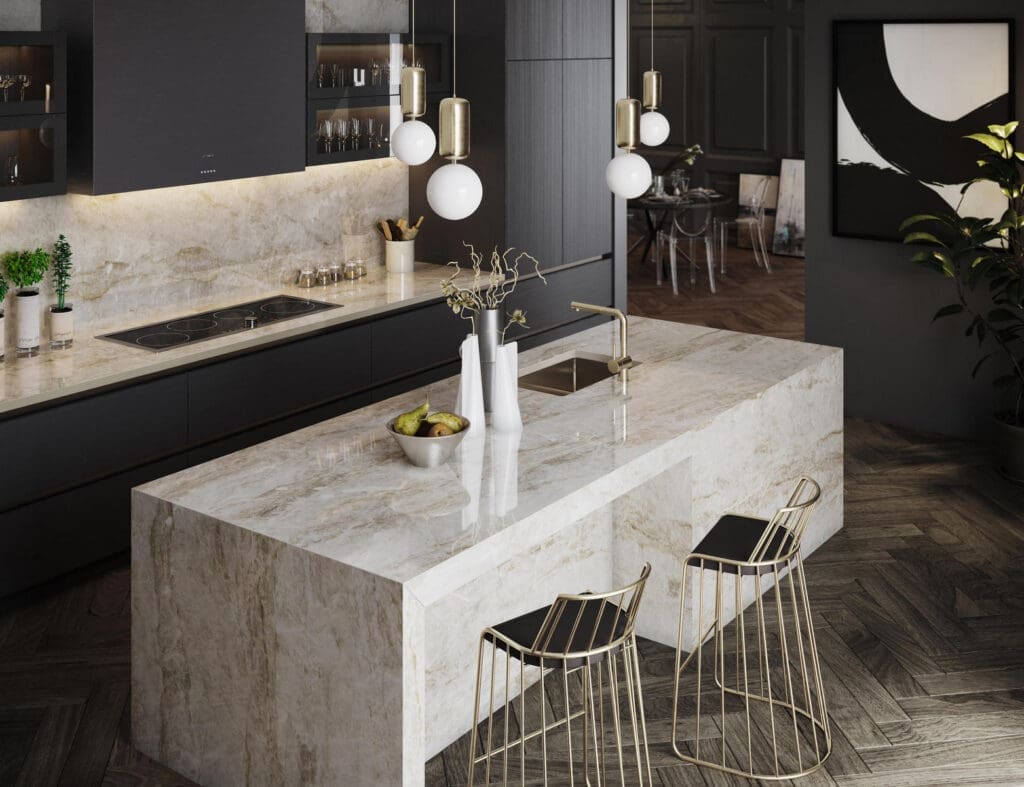
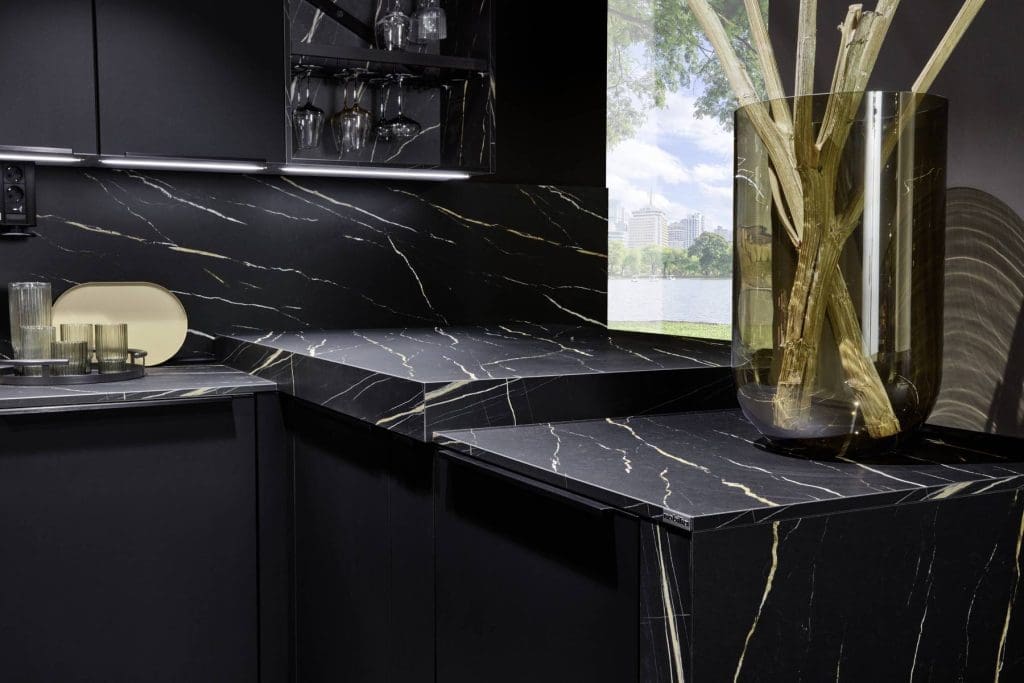
Leading Brands of Sintered Stone
- Dekton by Cosentino: Dekton is a leading brand in sintered stone, known for its innovative technology and impressive range of colours and finishes.
- Neolith: Another popular choice, Neolith offers high-quality sintered stone surfaces with excellent technical properties.
- Lapitec: Lapitec is a sintered stone brand that focuses on sustainability and large format slabs.
3. Porcelain
Porcelain is another excellent option for kitchen worktops. Made from a mix of clay and minerals fired at high temperatures, porcelain offers a sleek and modern look with impressive technical properties.
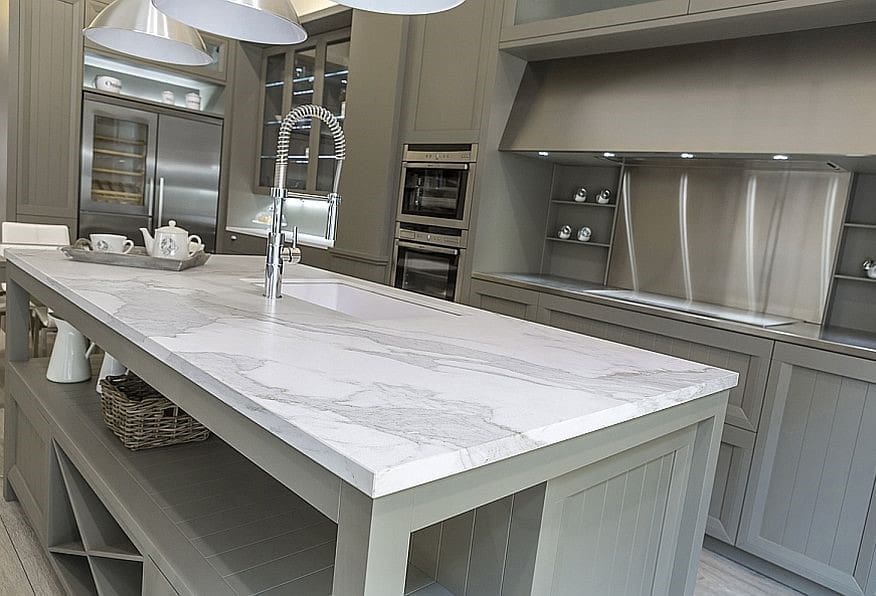
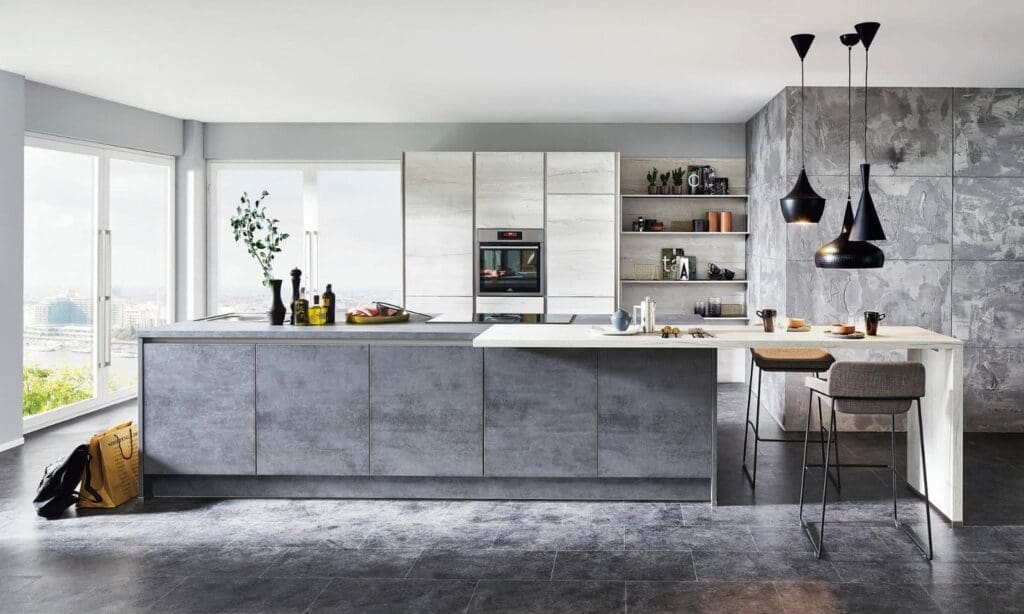
Pros and Cons of Porcelain
Pros of Porcelain:
- Highly resistant: Porcelain is extremely resistant to scratches, heat, stains, and UV light, making it a very practical choice.
- Hygienic: Its non-porous surface is easy to clean and won’t harbour bacteria.
- Design Versatility: Available in a wide range of colours, patterns, and finishes, including realistic marble and wood effects.
Cons of Porcelain:
- Can be brittle: While resistant to scratches, porcelain can be prone to chipping if heavy objects are dropped on the edge.
- Cost: Porcelain worktops tend to be at the higher end of the price range.
- Installation: Requires specialist knowledge and tools for proper installation.
Leading Brands of Porcelain
- Neolith: A leading brand in sintered compact surfaces, Neolith offers a wide range of porcelain worktops known for their durability and design.
- Dekton by Cosentino: Dekton is another popular choice, using exclusive Sintered Particle Technology to create ultra-compact surfaces that are highly resistant to heat, scratches, and stains.
- Lapitec: Lapitec offers large-format porcelain slabs with a focus on sustainability and technical performance.
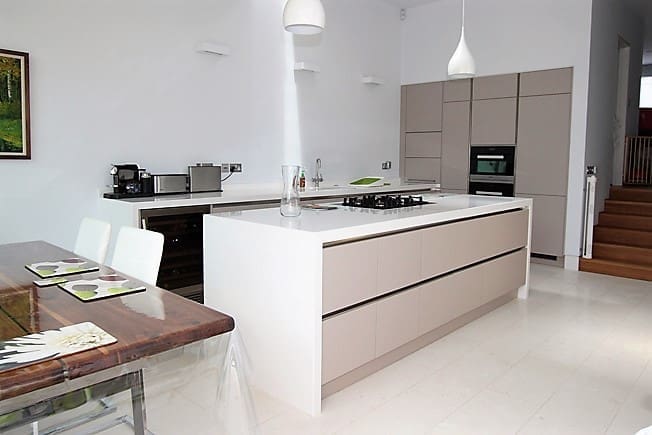
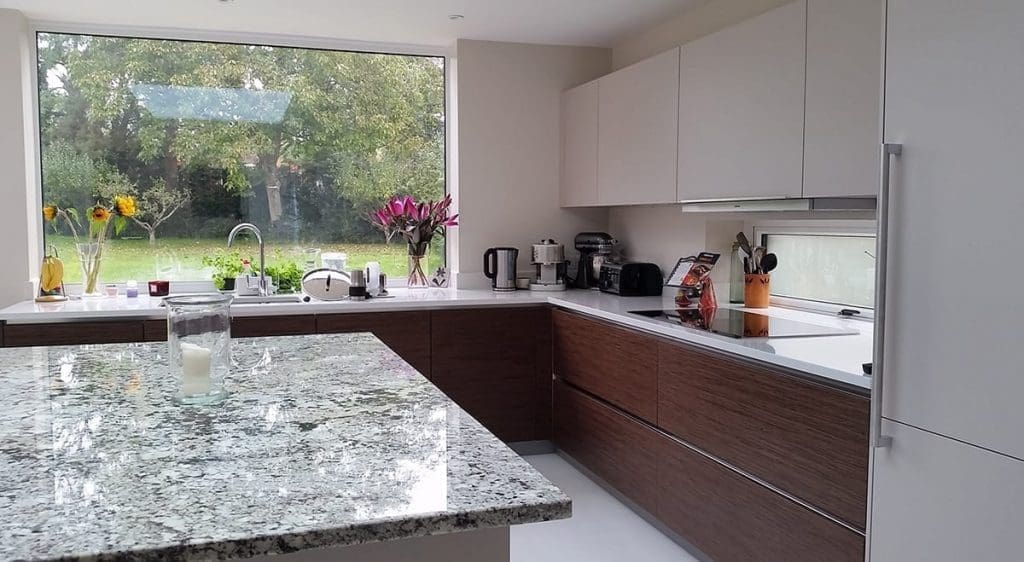
4. Granite Kitchen Worktops
Granite is a natural stone that offers a timeless and elegant look. Each slab is unique, with natural variations in colour and pattern, adding character to your kitchen.
Pros of Granite:
- Durability: Granite is incredibly strong and resistant to scratches and heat.
- Longevity: A granite worktop can last for decades with proper care.
- Unique Appearance: Every piece of granite is different, giving your kitchen a one-of-a-kind look.
Granite Worktops
Cons of Granite:
- Porosity: Granite needs to be sealed regularly to prevent staining.
- Cost: It can be one of the more expensive worktop options.
- Maintenance: Requires more upkeep than some other materials.
Leading Brands:
While granite is a natural material, it’s important to source it from a reputable supplier who can ensure quality and provide expert installation. Look for local stone masons with a good reputation and a wide selection of granite slabs.
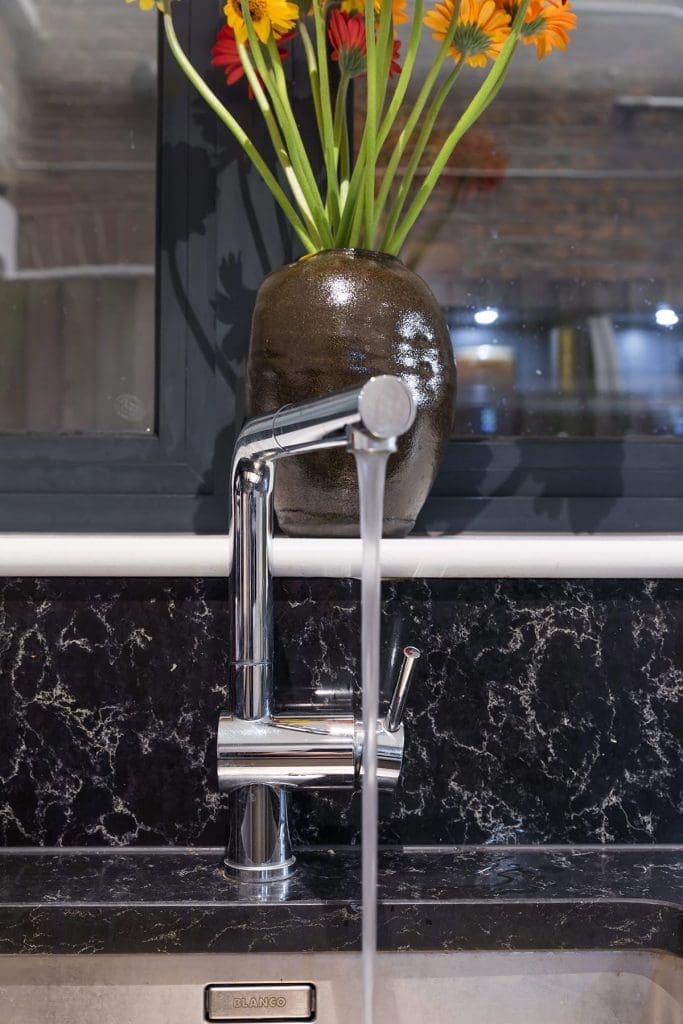
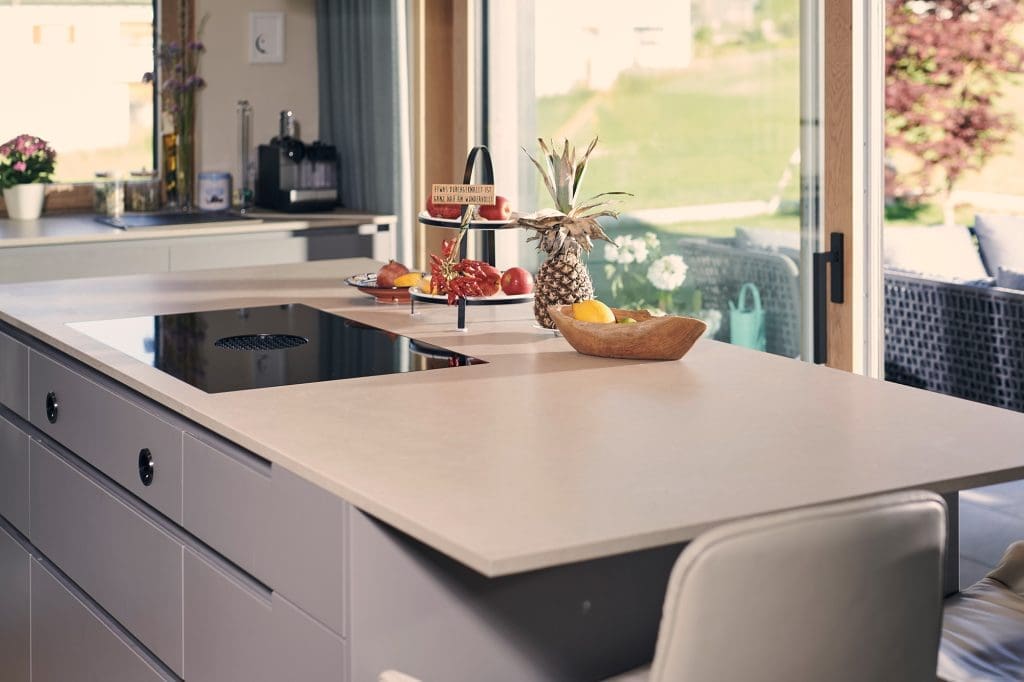
5. Compact Laminate Kitchen Worktops
Compact laminate is a high-pressure laminate material that’s becoming an increasingly popular choice for kitchen worktops. It offers a cost-effective solution with a wide range of design options.
Pros of Laminate:
- Affordability: Compact laminate is generally more budget-friendly than materials like quartz or granite.
- Durability: It’s resistant to scratches, impact, and moisture.
- Easy to maintain: Cleaning is simple with just a damp cloth and mild detergent.
Laminate Worktops
Cons of Laminate:
- Susceptible to heat damage: Hot pans should not be placed directly on the surface.
- Can be prone to chipping: While durable, the edges can be susceptible to chipping.
- Appearance: May not have the same high-end look as natural stone or quartz.
Leading Brands:
- Wilsonart: A well-known brand offering a wide range of compact laminate designs and colours.
- Formica: Formica is another popular choice with a long history, offering a variety of laminate options for different styles and budgets.
- Bushboard: Bushboard offers a range of innovative laminate worktops, including their popular Omega and Encore ranges.
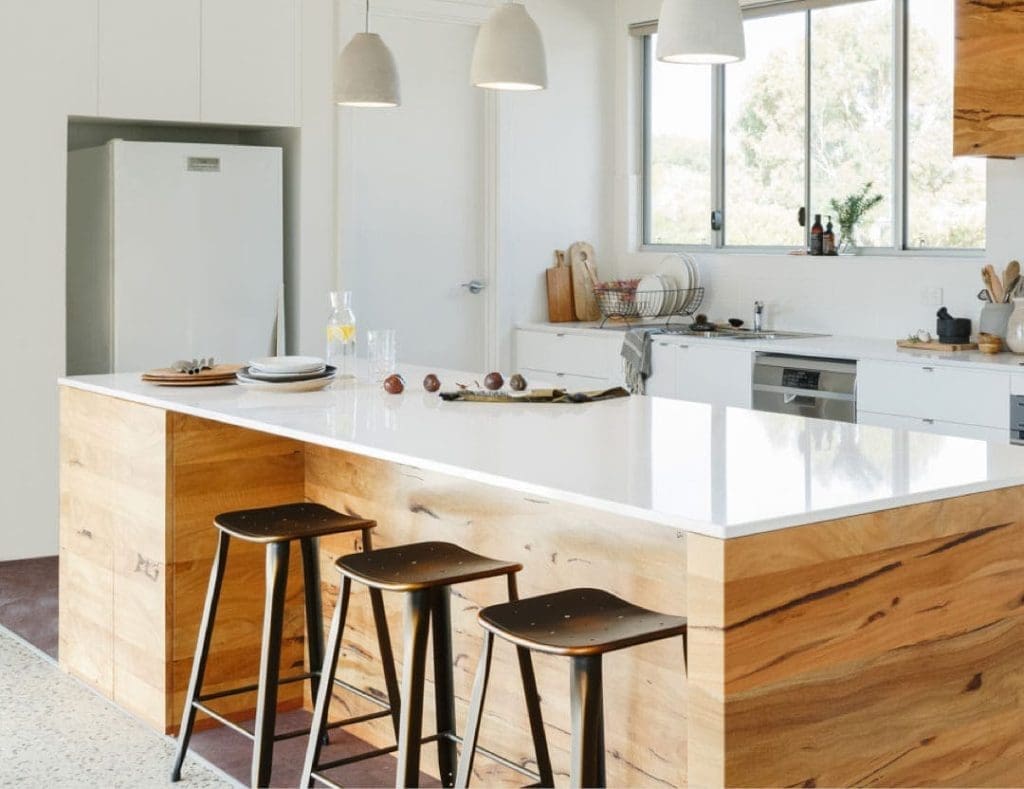
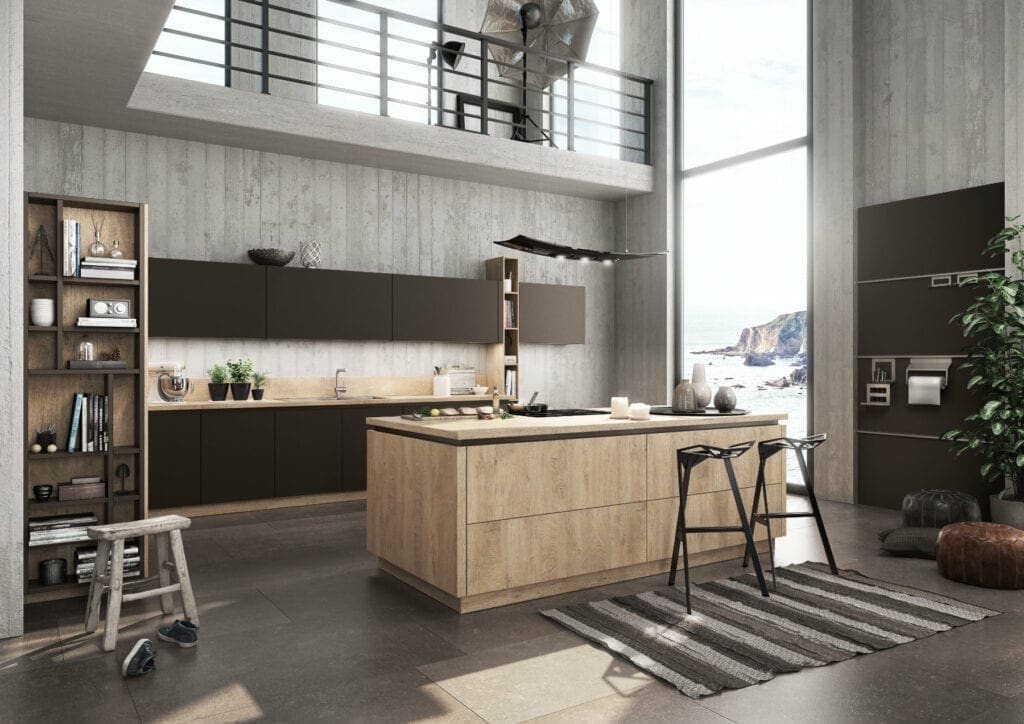
Making Your Worktop Choices
Remember: The “best” kitchen work surface depends entirely on your individual needs, preferences, and budget. Consider factors like your cooking style, how much maintenance you’re willing to do, and the overall aesthetic you want to achieve in your kitchen. Don’t hesitate to visit showrooms and speak to local Kitchen Experts to get a better feel for the materials and make an informed decision.
